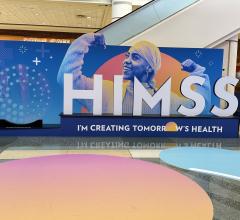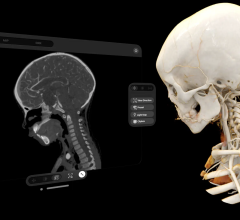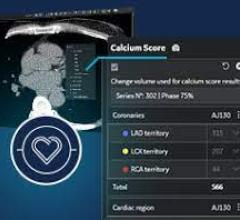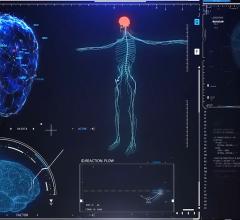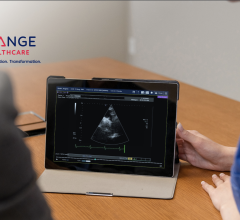
Kelly L. Neal, RN, MSN, MBA, director, cardiovascular services (left), and Marcia Deeb, CVIS administrator (right), saw a dramatic improvement in the charge process for cardiovascular services at The Washington Hospital after implementing Charge Manager.
The Washington Hospital (TWH), a 239-bed not-for-profit community hospital in the highly competitive cardiac market of western Pennsylvania, gained an edge against the competition by automating the charge management process of its cardiovascular service line. This upgrade was a natural progression of its current implementation of Horizon Cardiology, a cardiovascular information solution (CVIS) from McKesson, supporting hemodynamics, ECG, cath and echo for both imaging and reporting. The single database design gives TWH’s care providers a complete cardiovascular record for every patient.
TWH’s charge process was not unlike that of most hospitals: It was manual, labor-intensive and paper-driven within the department. Hospital leaders recognized that TWH’s workflow would benefit from Horizon Cardiology Charge Manager, a fully integrated, comprehensive and innovative electronic system.
The solution exceeded their expectations by enabling structured reports, which were already being created by the staff, to automatically populate charging reports. Additionally, TWH’s paper-based charge workflow was eliminated, reimbursement was expedited, and hours of overhead for nurses, technicians and administrators were saved. Ultimately, Horizon Cardiology Charge Manager reduced the time spent each year on the charge process by nearly 90 percent.
The Challenge
The charge workflow in TWH followed a common path seen at most hospitals. At the end of each procedure, a clinician would fill in a paper charge sheet with the procedure charges. The charge sheet was transferred to a designated clerk who typed the charges into the radiology information system (RIS). Finally, the chief technician reviewed and adjusted all the procedure charges on a daily basis. This paper-driven process involved multiple staff members and multiple hospital systems. It was also extremely time-consuming and error-prone. Since the charge process was managed on paper and required the RIS to manage the codes, the cardiology administrator was not able to generate statistical reports with charge information.
“We wanted to streamline this time-consuming process, get reimbursements faster and allow our staff to focus on patient care,” said Kelly L. Neal, RN, MSN, MBA, director, cardiovascular services. “We needed a charge solution that would seamlessly integrate into our workflow and eliminate the costly manual processes.”
The Solution
Implementing Horizon Cardiology Charge Manager across the cardiovascular departments resulted in significant and immediate improvements. “Since the module automatically captures charges directly from the procedural documentation, it significantly reduces the number of manual, paper-based steps required,” Neal explained.
Every day, the charge capture administrator opens the Web-based Charge Manager to review the captured charges of the performed procedures. During this review process, the administrator can launch any one of the clinical documents stored in Horizon Cardiology, such as the physician report or the hemo log, and compare it on a split screen side-by-side with the list of charges. The administrator can then make charge adjustments as necessary before submitting them to the hospital billing system.
This new process allows the cardiovascular departments to ensure the accuracy of both the charges and the clinical documentation, while eliminating the need to work with piles of paper documents. “We are amazed at the hours saved,” said Marcia Deeb, CVIS administrator. “A process that once involved administrative time from nurses and clerks now only requires a couple of minutes per procedure from the charge administrator.”
Since all cardiology charge tasks are performed within a single system, paperwork and duplicate data entry are eliminated.
Benefits From the System
The return on investment and improved efficiency were immediate and tangible. Hours of staff time required to support the charge process were entirely eliminated with Horizon Cardiology Charge Manager (see Figure 1).
Additionally, before the implementation of Horizon Cardiology Charge Manager, every new charge code created by the cardiology department was updated and tested in the RIS by the radiology administrator. This process alone took about 30 minutes per code. After the implementation of Charge Manager, the need to maintain cardiology charge codes in the RIS was eliminated. As a result, the estimated time saved per year for the radiology administrator is 197 hours (see Table 1).
“We are very pleased with the positive impact Horizon Cardiology Charge Manager has had on our operations,” Deeb said. “The solution surpassed all our expectations. We estimate that we’re saving 985 hours annually as a result of the increased efficiency this solution has brought to our organization.”
As part of the charge capture process, the system instantaneously generates a charge audit workflow, simultaneously displays charges and reports on the same screen, and electronically supports technical and professional interfaces.
“The system’s reporting capabilities are fantastic,” Deeb said. “And looking ahead to new regulatory requirements, we envision being able to provide physicians with the information they need to validate their charges for the professional billing component.”
This story was supplied by McKesson Provider Technologies.




 December 23, 2025
December 23, 2025 
